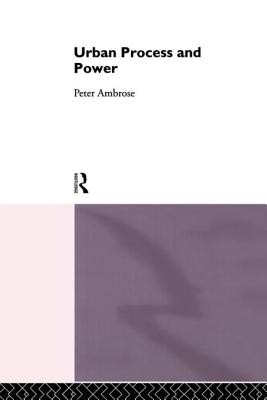
- We will send in 10–14 business days.
- Author: Peter Ambrose
- Publisher: Routledge
- ISBN-10: 0415008514
- ISBN-13: 9780415008518
- Format: 15.6 x 23.4 x 1.4 cm, softcover
- Language: English
- SAVE -10% with code: EXTRA
Reviews
Description
Urban Process and Power has two chief aims. Firstly, it analyses and explains a century of the production and reproduction of the urban environment in which most of us live. Secondly, the book focuses on recent changes in the control of these processes and the ideology that has brought these changes about. Immense disparities exist between the "best" and the "worst" urban areas in Britain. Why do these differences arise and how are they perpetuated? The author argues that the growth of such inequality is linked to questions of accountability and the increasing erosion of a democratic principle in the urban process.
EXTRA 10 % discount with code: EXTRA
The promotion ends in 20d.16:26:38
The discount code is valid when purchasing from 10 €. Discounts do not stack.
- Author: Peter Ambrose
- Publisher: Routledge
- ISBN-10: 0415008514
- ISBN-13: 9780415008518
- Format: 15.6 x 23.4 x 1.4 cm, softcover
- Language: English English
Urban Process and Power has two chief aims. Firstly, it analyses and explains a century of the production and reproduction of the urban environment in which most of us live. Secondly, the book focuses on recent changes in the control of these processes and the ideology that has brought these changes about. Immense disparities exist between the "best" and the "worst" urban areas in Britain. Why do these differences arise and how are they perpetuated? The author argues that the growth of such inequality is linked to questions of accountability and the increasing erosion of a democratic principle in the urban process.


Reviews